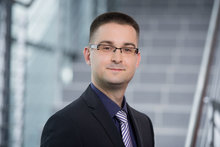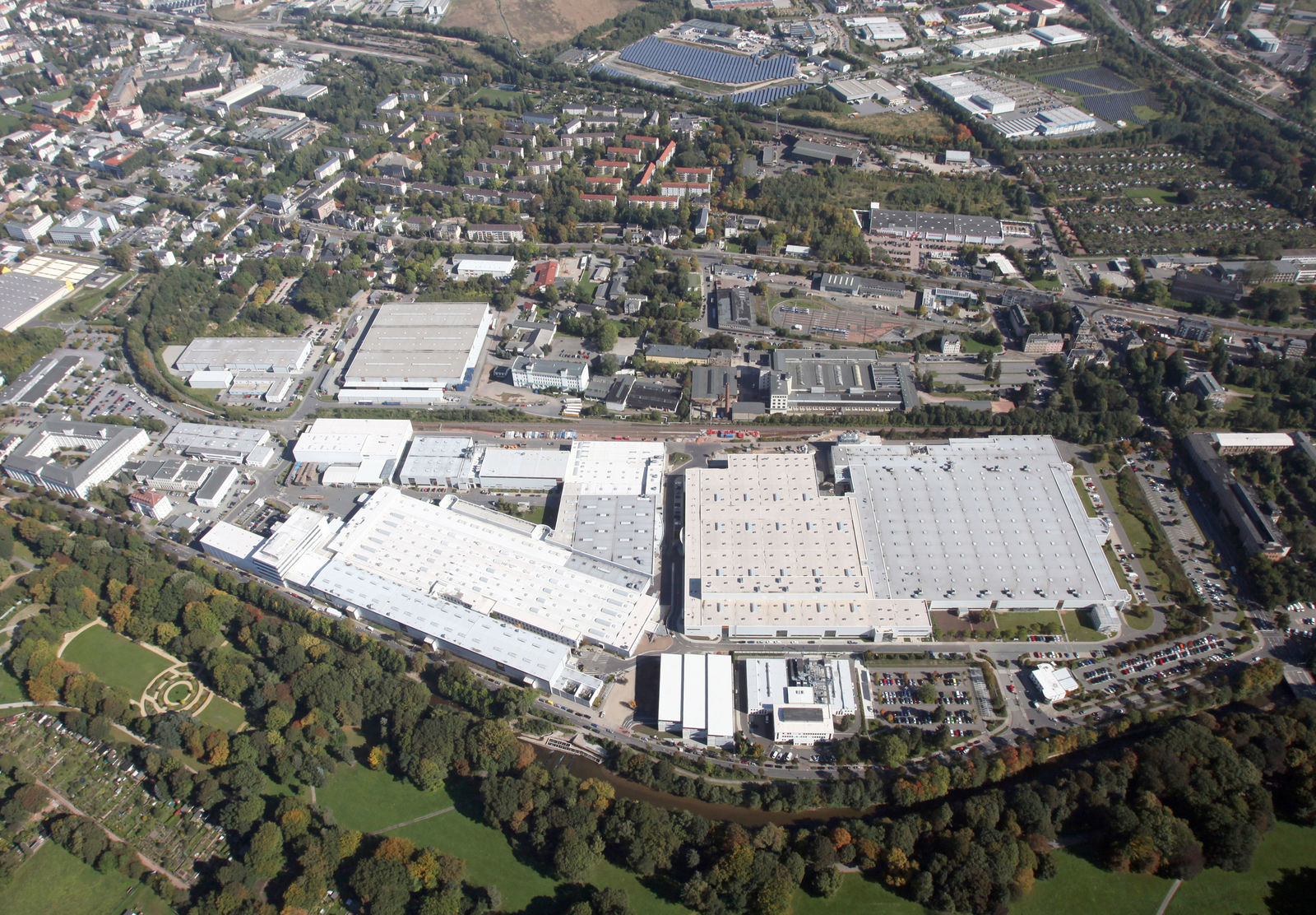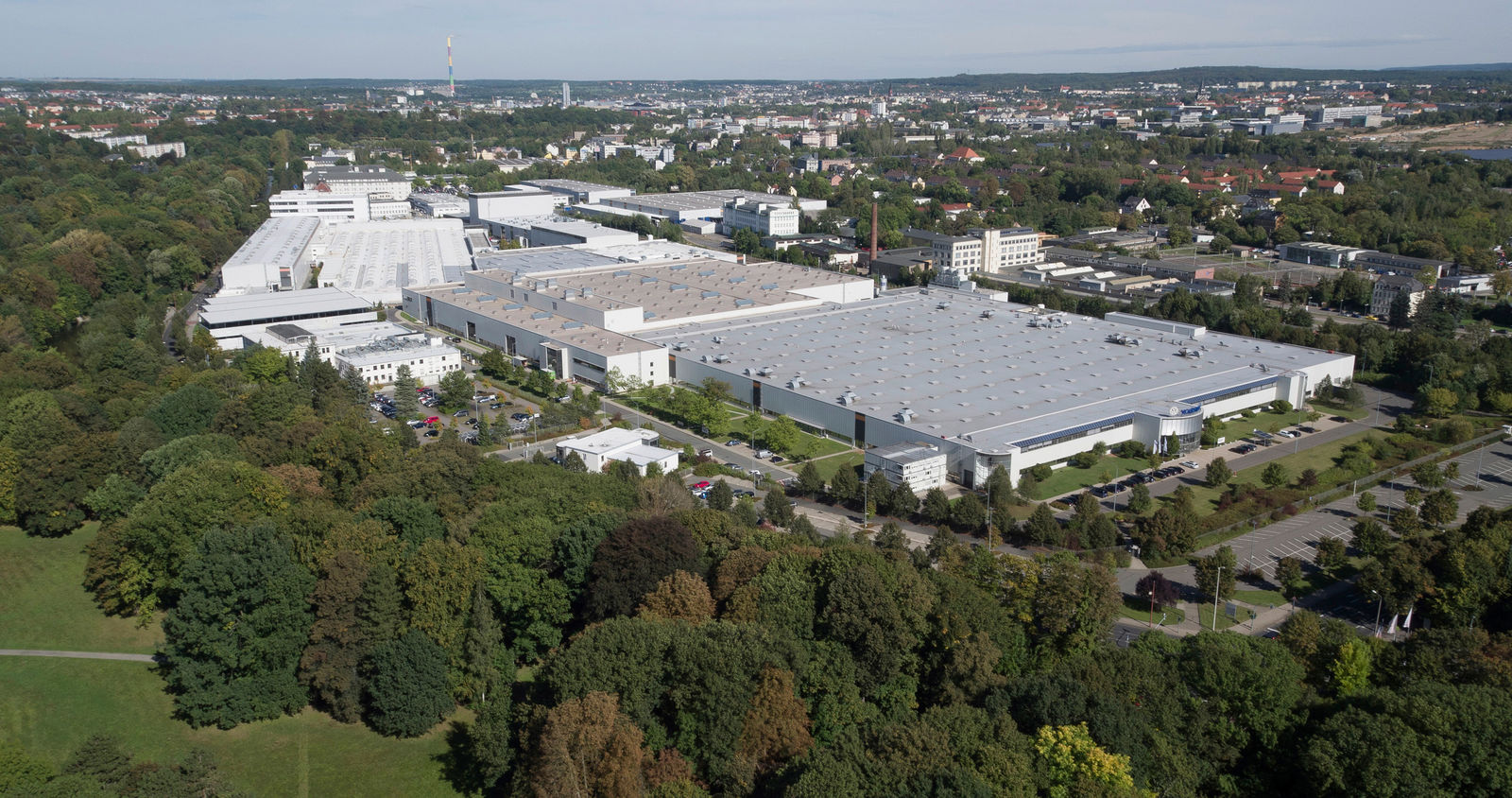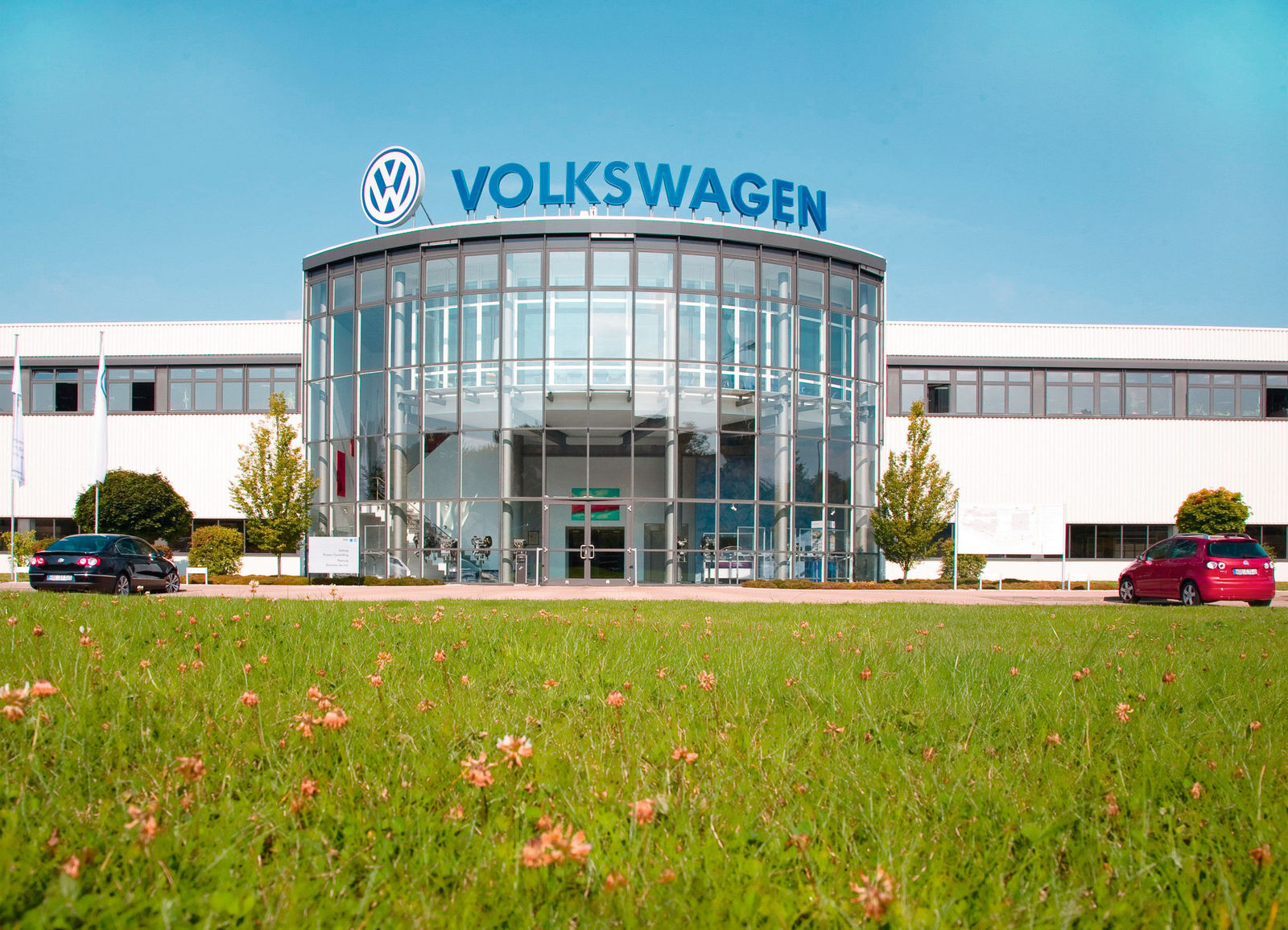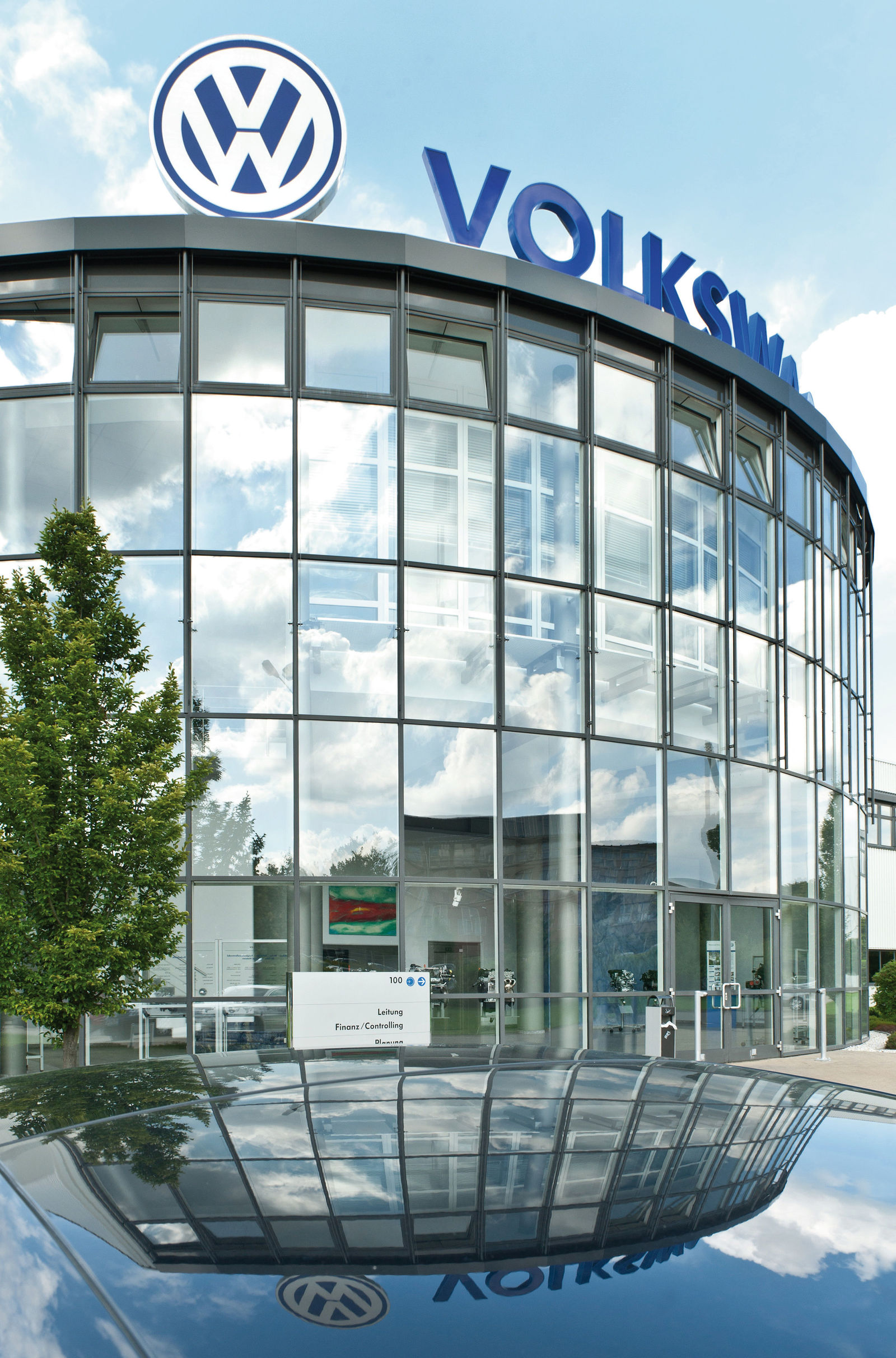| Area: | 213,000 m2 |
| Production: | 720,000 engines (as of December 2024) |
| Products: | Petrol engines, engine components (crankshafts, conrods, cylinder heads, crankcases, cams, pipes for integrated valve gear modules) |
| Employees: | 1,800 (incl. work-study degree students and vocational trainees; as of December 2024) |
Volkswagen Sachsen GmbH
Chemnitz plant
Information for the Press
Plant
The Chemnitz engine plant covers a total area of 213,000 m², which is equivalent to 30 soccer pitches. It is located directly next to Chemnitz city park. With a workforce of some 1,800 employees (incl. work-study degree students and vocational trainees), Volkswagen in Chemnitz is one of the city's largest private employers.
Production
The Chemnitz engine plant supplies engines to the vehicle plants as well as components to the component plants of the Volkswagen Group. In addition to modern, low-consumption direct petrol injection engines (TSI), the Chemnitz plant also manufactures engine asssembly groups such as balance shafts and integrated valve gear modules. Within the Group, Chemnitz is the type leader for EA 211 engines (1.0 liter and 1.5 liter capacity). Each ramp-up of the three engines at other Group sites worldwide is supported by experts from the Chemnitz plant. Over 20 million Volkswagen engines have been built at the Chemnitz site since 1988. In 2024, around 720,000 engines were delivered. In the future, the site will also enter into the production of components for e-mobility. Thermal management has already been confirmed as the first product.
Plant manager
Franziska Fischer has been Plant Manager of the engine plant in Chemnitz since August 1, 2024. She studied chemistry and marketing. Franziska Fischer has held leading positions in the automotive supply industry for several years. In 2012, she moved to Fehrer in Wackersdorf and took over the management of the site in 2015. Born in Thuringia, she gained international experience at the Fehrer site in Gadsden (Alabama) in the USA. In 2020, she moved to Yanfeng in Neustadt an der Donau. Franziska Fischer is married and the mother of two children.
Environmental protection
The integration of environmental protection in all business and decision-making processes is a key element of strategic decisions at Volkswagen Sachsen. Production processes at the Chemnitz plant are continually optimised to ensure that production is as environmentally compatible as possible. Efforts focus on the reduction of energy consumption and carbon dioxide emissions at the Chemnitz plant. Other key elements are the reduction of production waste and industrial water consumption.
At the Chemnitz engine plant, energy consumption has been significantly reduced by the consistent application of energy efficiency measures in production and the use of advanced, resource-conserving processes in new production facilities. Around 38 percent of energy has been saved since 2010. Major advances have also been made in the area of freshwater consumption (minus 48 percent) and CO₂ emissions (minus 89 percent).
Due to the central location next to the city park and proximity to a residential area, the plant has a special responsibility to its environment. To reduce noise and avoid truck traffic, the finished engines are transported by train. A parking guidance system for employees makes it easier to find free parking spaces at shift changes. Beneath the multi-storey car park is a rainwater retention basin, which has a capacity of 2,450 m³ and acts as a flood defence mechanism.
The plant has received the platinum certificate of the Deutsche Gesellschaft für Nachhaltiges Bauen (DGNB – the German Association of Sustainable Building) and is a member of Umweltallianz Sachsen (the Saxon Environmental Alliance). The Chemnitz engine plant has a certified environmental, energy and quality management system as well as occupational health and safety.
About Volkswagen Sachsen GmbH
The founding of Volkswagen Sachsen GmbH in December 1990 marked the launch of an ambitious project by Volkswagen AG to establish a competitive production facility for Volkswagen vehicles and engines in one of the most traditional regions of the German automotive industry. In addition to the temporary use of existing facilities at Zwickau and Chemnitz, which Volkswagen fully modernised, two new manufacturing facilities were built for vehicle and engine production. The Gläserne Manufaktur in Dresden was inaugurated in 2001. Automobilmanufaktur Dresden GmbH (Gläserne Manufaktur) was merged with Volkswagen Sachsen GmbH in 2014.
Volkswagen Sachsen GmbH now includes the Zwickau vehicle plant, the Chemnitz engine plant and the Gläserne Manufaktur in Dresden. Volkswagen Sachsen GmbH has a workforce of around 11,500 employees (including dual the Volkswagen Training Institute). Roughly 98 per cent of the employees have industry-related vocational training, a master craftsman’s certificate or a technical college or university degree. The average age is around 45 years and women currently account for 12.7 per cent of the workforce.
Danny Auerswald is Chairman of the Board of Management of Volkswagen Sachsen GmbH with responsibility for Technology and Logistics. The Management Board also includes Professor Thomas Edig (Human Resources and Organisation) and Lukas Folc (Finance and Controlling).
Photos
Media contact
